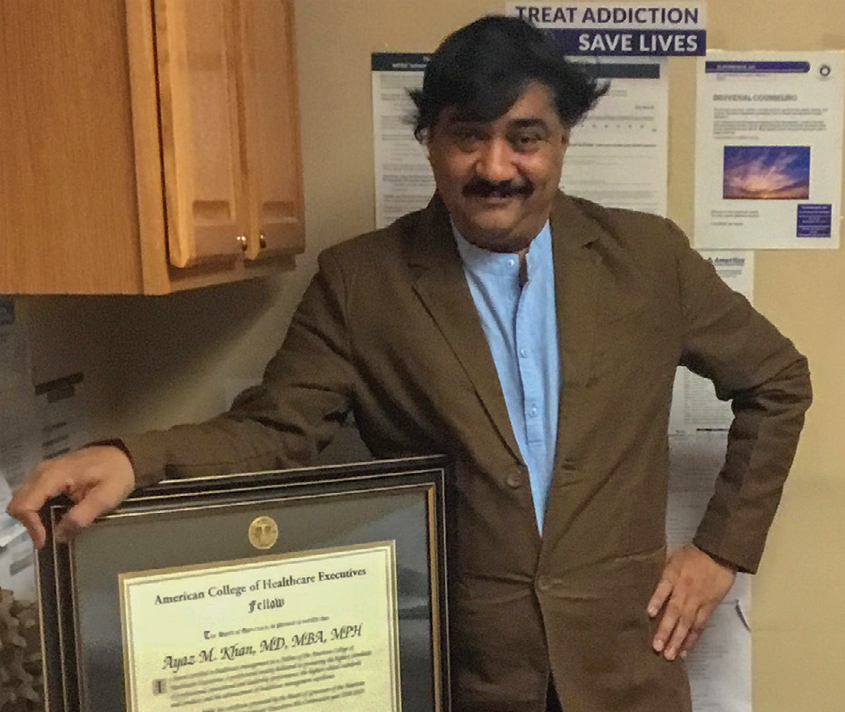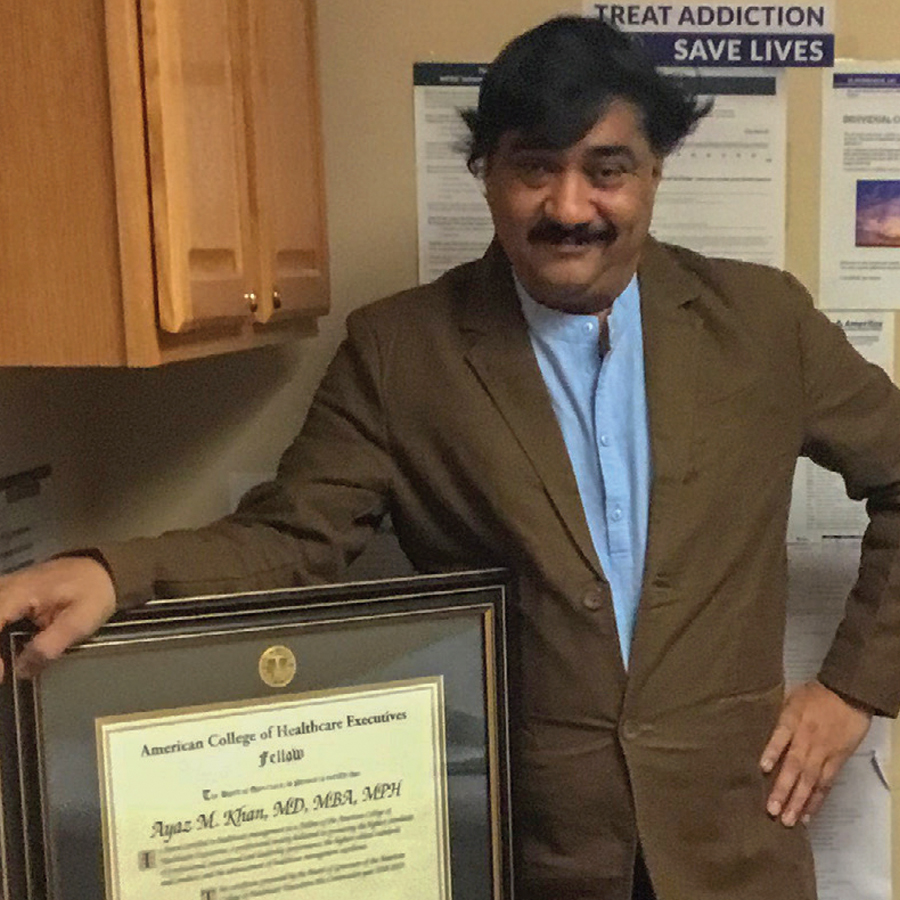Medicine Meets Business
 Ayaz Mahmood Khan is a respected pain management doctor in Williamsport, Pennsylvania. But there’s another side to this doctor: Khan is also the medical director at two pain management centers. One skillset is dedicated to treating patients, the other to leading medical organizations.
Ayaz Mahmood Khan is a respected pain management doctor in Williamsport, Pennsylvania. But there’s another side to this doctor: Khan is also the medical director at two pain management centers. One skillset is dedicated to treating patients, the other to leading medical organizations.
“The two responsibilities require different approaches,” says Khan. “After all, in business, we are often taught to abandon emotion in favor of clear and sharp rationality. In medicine, treating patients is often a process that transcends just the body—it involves the mind and soul as well. I have overcome these obstacles through selecting each skill, whether it be rationality or emotional intelligence, when required. It is challenging to pinpoint which situation requires what. It is a balance, I’ve realized.”
Medical school and years of practice made Khan a better physician. Then Harbert’s Physicians Executive MBA program helped Khan sharpen his business skills and find the balance he desired. He graduated from the program in 2014.
“Auburn won’t simply teach you the art of mastering the degree,” he says. “Auburn teaches you to think boldly and without any conceivable limits.”
Other than patient care, Khan deals with budgets, organizational project implementation, managing up the chain, and negotiates with stakeholders. It takes a business mind to succeed in this setting. “My MBA training from Auburn has prepared me to tackle them and I feel very confident in my role as the medical director,” he says.
Why choose pain management? Compassion.
“Nothing can be more heartwarming than being able to alleviate another person’s suffering,” he says. “The opportunity for extraordinary intimate encounters, endless challenges and unlimited service to humanity are just some of the compelling reasons for my becoming a doctor. I chose pain management and addiction management to address a niche in the patient population that was overlooked. Millions suffer from chronic pain and addiction and the two are often intertwined. I care deeply for my patients and wish to expand the view the world has on those with chronic pain and addiction.”
Khan says a “high level” of stigma surrounds chronic pain/addiction patients.
“The misconception revolves around those with chronic pain to be individuals who complain and seek medical care with the sole aim of gaining drugs,” he says. “That is simply not true. Chronic pain has several facets and its intricate nature is why physicians often must approach several different solutions to tackle the pain. Individuals with chronic pain are valid. Their emotions, their life, and their needs, need to be recognized. Addiction, on the other hand, is a disease like any other chronic disease and needs to be approached medically as such.”
Khan’s dedication to patient care and the industry was recently awarded with a Fellowship Credential, or FACHE, by the American College of Healthcare Executives, one of the highest honors in the profession. “Earning the honor of FACHE allows me to meet like-minded individuals who have a passion for business and medicine,” says Khan. “It is a certain recipe for success, innovative thinking, and dares individuals to think even more broadly. Auburn MBA prepared me well to pass the ACHE Board of Governors rigorous certifying examination. I would recommend in a heartbeat any physician aspiring to learn the art and science of business management to choose the Auburn PEMBA.”

